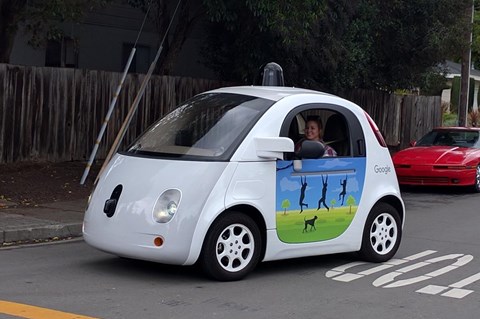► When will autonomous cars launch for real?
► Ben Oliver is sceptical it’s any time soon
► Driverless cars: the future…
On 18 March 2018, 49-year-old Elaine Herzberg stepped into the road with her bicycle in Tempe, Arizona, and became the first pedestrian to be killed by a self-driving car. She was hit at 39mph by a Volvo XC90 being used to test Uber’s self-driving software.
The system was controlling the car, with an Uber employee at the wheel but not driving. An investigation found that the car recognised her six seconds before impact, and that the software, the driver and the pedestrian might each have borne some responsibility for what happened.
But few will examine the case in detail: instead the headlines told us that a self-driving car had killed a pedestrian. There have been three reported deaths of Tesla drivers while Autopilot has been enabled, the third happening in the US less than a week after the collision in Tempe. But these cause less outrage because by consenting to be driven by an autonomous car, the victim is seen as being complicit in his or her own death. The 75% of us who say we would never travel in an autonomous car worry that we might be killed by one anyway.
Google, Uber and the car industry: race to be first with autonomous cars
Google’s Waymo autonomous cars have now covered more than five million miles, but it’s not nearly enough to provide statistically credible proof that self-driving cars are safer than those we drive ourselves. They probably will be, but we’re going to have to accept that some people will be killed by them. Even if they kill far fewer people, they will be different people: people who would have lived were it not for robot cars. There’s something particularly troubling about a robot causing a human’s death.

Did the future recede a little in the past year as a consequence of these incidents, and the resulting increase in public awareness of what’s being tested on our streets? Maybe.
If your idea of the future involves autonomous pods carrying you from home to office and back while you doze, it was never that close anyway. Off the record, car makers and tech firms have always had doubts that full, ‘brain-off’ autonomy can ever be made to work. One AI pioneer told me there’s a good chance machines will never be smart enough to drive.
So when will autonomous cars be a reality on our roads?
In August 2018, Ian Robertson, a former board member at BMW, gave public voice to the car makers’ other great concern: that despite the investments they’re making in autonomy, regulators might limit its implementation to small, tightly controlled areas, or specific types of roads: Milton Keynes and a few motorways, for example.
‘We’re at peak hype at the moment,’ says Max Warburton, the analyst with bugs in all the boardrooms. ‘This stuff is going to take longer to impact than a lot of the headlines suggest. First we’ve got to figure out what Brexit looks like. Next we’ve got to figure out how to deal with electrification. Autonomy is a distant third on the list.’
More opinion pieces by Ben Oliver